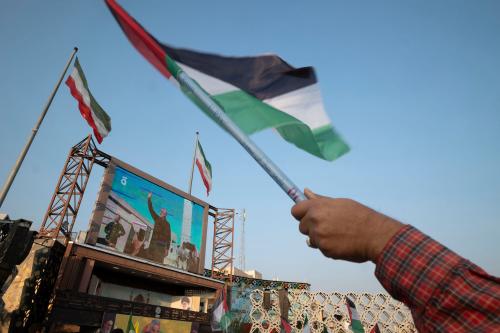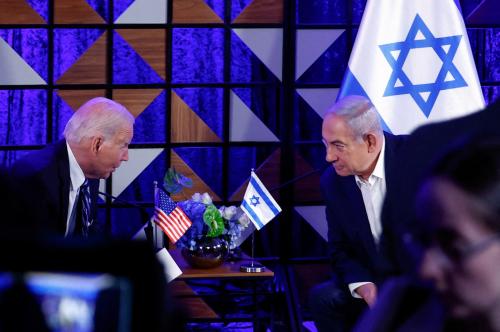SHAKILA KHALJE: Do we need a new strategy to secure stability in Afghanistan and in the region, which includes negotiating openly with the Taliban?
BRUCE RIEDEL: In my view what we need in Afghanistan is a commitment of resources equal to the job at hand. The United States has under researched the war against the Taliban and Al-Qaeda in Afghanistan from the beginning. Too few troops and too few resources have been the Achilles heel of the Bush administration’s approach for almost six years. The strategy of relying on small numbers of troops in Provincial Reconstruction Teams around the country has been like trying to put a band aid on a chest wound. We simply have not sent the size force needed to do the job. Worse, we have tried to rebuild a country devastated by a quarter century of wars, invasion and terror on the cheap. Instead of a massive economic reconstruction effort akin to the Marshall Plan of the 1940s Afghans have gotten less economic aid on a per capita basis than Haitians or Bosnians. The result has been the revival of the opium trade and the drug culture which corrupts Afghan government and society.
We have seen promises to increase aid to Afghanistan belatedly this year from the President Bush, but most of the money is for military and security needs, not economic reconstruction and development. The Afghan army badly needs modern weapons and vehicles but the Afghan economy needs even more. The US, the European Union, Japan, India, Russia and the Arab Gulf States should work to develop a multi billion dollar multi year economic aid plan under the leadership of the UN.
President Karzai’s government has been trying to talk to the so called moderates in the Taliban for several years with little results to show. The German BND intelligence service has apparently also tried but the Taliban would not break its ties to al Al-Qaeda. I am very skeptical that there is a substantial body of ‘moderates’ Taliban.
The movement remains under the leadership of Mullah Omar, the self proclaimed Commander of the Faithful, and an extreme enemy of Karzai, the West and America. Mullah Omar is not interested in talking, his calculation is that time is on the side of the Taliban. He believes America and its NATO allies will lose the will to fight in Afghanistan just as the Soviet Union lost the will to fight and went home. Mullah Omar is not going to break with al Al-Qaeda and Osama bin Laden. Mullah Omar is not going to abandon his drive to put back together the Islamic Emirate of Afghanistan that harbored al Al-Qaeda and repressed its own peoples.
KHALJE: What is Pakistan’s role ?
RIEDEL: Pakistan has been the incubator for the Taliban’s revival in the last few years just as it was the incubator for its creation in the 1990s. While the Pakistan government temporarily withdrew its support in 2001, it has since looked the other way as the Taliban has used Pakistani territory to recruit, train and fund its revival. Mullah Omar, for example, has spent considerable time in Pakistan since 2002 in hiding. Taliban fighters with al Al-Qaeda assistance rely on safe haven in Pakistan to escape NATO offensives in the south and east. Pakistani sponsored Kashmiri groups also provide support and help to the Taliban and al Al-Qaeda based on connections that go back to the late 1990s and joint terrorist operations like the hijacking of an Indian air liner in 1999. Efforts to develop joint Pakistani-Afghan intelligence sharing against the Taliban and al Al-Qaeda under US sponsorship have yet to bear significant fruit.



Commentary
How to Tackle Rising Instability and Insurgency in Afghanistan
August 23, 2007